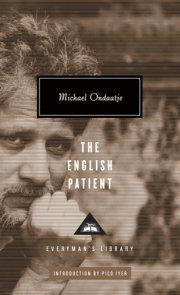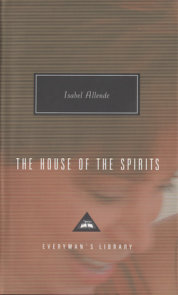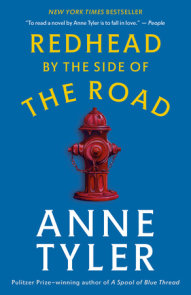READERS GUIDE
The introduction, discussion questions, author biography, and suggested reading list that follow are designed to enhance your group’s reading of V. S. Naipaul’s 1961 classic, A House for Mr. Biswas. We hope they will provide you with new ways of thinking and talking about the novel Anthony Burgess called "a work of great comic power qualified with firm and unsentimental compassion."Introduction
A House for Mr. Biswas follows the life of Mr. Mohun Biswas, a protagonist inspired by Naipaul’s father, as he struggles to find his freedom and a house of his own. The son of a poor laborer in Trinidad, Mr. Biswas is forced to live as a guest in one crowded, inhospitable house after another. After his father dies, his family moves in with his mother’s sister, Tara, and he is humiliated and beaten by Tara’s brother-in-law Bhandat. Mr. Biswas vows, "I am going to get a job on my own. And I am going to get my own house too. I am finished with this" [p. 64]. He goes to work as a sign-painter for the Tulsi family, and there he begins a flirtation with Shama. After his love letter is discovered by Mrs. Tulsi, Mr. Biswas is bullied into marrying Shama, thus beginning a long and unhappy marriage that produces four children, a constant struggle for money, and countless bitter quarrels. After a brief and failed attempt to run a dry goods store in The Chase, Mr. Biswas and his family return to live with the Tulsi family, a pattern that recurs thoughout the novel. It is in Port of Spain that Mr. Biswas comes closest to happiness, working as a journalist for the tabloid Sentinel, writing outlandish stories, and achieving a degree of local fame. Here, too, his son Anand excels in school and shows signs of talent as a writer. But Mr. Biswas’s fortunes suffer several reversals, and it is not until the very end of his life that he is finally able to buy a house–only to find the experience much different than he had imagined.A vivid portrait of a man who fights to free himself from the entanglements of family, custom, and religion, A House for Mr. Biswas is also an unforgettable look inside colonial society at the beginnings of great transition.
Questions and Topics for Discussion
1. A House for Mr. Biswas is a largely autobiographical novel about V.S. Naipaul’s own family. Mr. Biswas is based on Naipaul’s father and the character of Anand on Naipaul himself. What specific experiences described in the novel, and especially the relationship between father and son, lead Anand to become a writer? What advantages will he have that Mr. Biswas did not? What conclusions can you draw about Naipaul’s life based on the book?
2. Mr. Biswas enters into the world "six-fingered and born in the wrong way" [p. 15], and a life of bad luck is presaged for him. In what ways does this prophecy seem to come true?
3. Early in the novel, Mr. Biswas, a sign-painter and later a journalist, writes a love letter to Shama. What are the immediate consequences of this letter? What are its long-term effects? Is it ironic that writing plays such an important role in determining Mr. Biswas’s fate?
4. At various points the narrative jumps ahead, describing an experience or situation years from the fictional present. When Mr. Biswas is cowed by the Tulsi family into marrying Shama, the narrator reflects, "How often, in the years to come, at Hanuman House or in the house at Shorthills or in the house in Port of Spain, living in one room, with some of his children sleeping on the next bed . . . how often did Mr. Biswas regret his weakness, his inarticulateness, that evening" [p. 87]! How does knowing the novel’s fictional future affect the way we read what is happening in its present? For example, does Mr. Biswas’ death, discussed in the prologue and therefore known throughout the novel, give a poignancy to his struggles?
5. Why do the characters in A House for Mr. Biswas switch between Hindi and broken English? What does this suggest about the hybrid nature of Trinidadian society and its colonial history?
6. Throughout the novel Mr. Biswas battles the Tulsi family, engaging in one quarrel after another. Why does he find living with them so distasteful, so humiliating? Why do the Tulsis, in turn, find Mr. Biswas unbearable? What kinds of things do they argue about? Are the subjects of these arguments inherently important or do mask more serious differences?
7. When Mr. Biswas moves his family to The Chase, he is puzzled by his wife’s nagging: "Living in a wife-beating society, he couldn’t understand why women were even allowed to nag or how nagging could have any effect" [p. 14]. And when Govind beats his wife Chinta, we’re told that "her beatings gave Chinta a matriarchal dignity and, curiously, gained her a respect she had never had before" [p. 443]. Why would Chinta’s status improve because of her beatings? How is flogging used throughout the novel? What does it suggest about power relations between men and women and between parents and children?
8. Why does Mr. Biswas feel trapped by his wife and family? Why does he regard Shama and the children as "alien growths, alien affections, which fed on him and called him away from that part of him which yet remained purely himself, that part which had for long been submerged and was now to disappear" [p. 461]? What kind of life does he feel his family keeps him from living?
9. Why does Mr. Biswas become a journalist? What aspects of his temperament and experience enable him to excel at the kind of writing the Sentinel initially demands? How does his success at the paper change his status within the Tulsi family?
10. Mr. Biswas tells his son Anand, "Remember Galilyo. Always stick up for yourself" [p. 267]. In what ways is Mr. Biswas himself a rebel? On what occasions does he defy others and stand up for himself?
11. Mr. Biswas is highly critical of Hinduism–and indeed of all religions–for most of the novel. He chides Owad for worshiping idols and blames the failure of his shop at The Chase on Hari’s ritual blessing. What does the novel as a whole seem to be saying about the role of religion in Trinidadian society? How does religion affect the ways the characters in the novel treat each other?
12. When Owad returns from his medical studies at Cambridge, he is filled with opinions about writers and artists such as T. S. Eliot and Pablo Picasso, both of whom he loathes. He also considers himself a communist. After a bitter quarrel, Mr. Biswas suggests, "communism, like charity, should begin at home" [p. 533]. What does Naipaul appear to be saying, through the character of Owad and the quality of life at the Tulsi house, about the value of communal living?
13. Naipaul has often been praised for his comic gifts. Which scenes or situations in A House for Mr. Biswas give rise to comedy? In what ways does Mr. Biswas display his own comic and satiric sensibility?
14. In a letter he once wrote to his father, Naipaul explains that literature boils down to "writing from the belly rather than from the cheek. Most people write from the cheek. If the semi-illiterate criminal wrote a long letter ordinarily to his sweetheart, it would be what most letters of such people generally are. If the criminal wrote this letter last thing before his execution, it would be literature; it would be poetry." In what ways does Naipaul himself write from the belly rather than the cheek?
15. A House for Mr. Biswas tells the story of an ordinary man with modest ambitions whose life is not marked by dramatic events. How does Naipaul imbue his story with the pathos and significance that have won the book worldwide acclaim since its initial publication? Does Mr. Biswas achieve a kind of victory at the end?
16. In what ways does Mr. Biswas’s longing for a house of his own parallel Trinidad’s struggle for national independence? What is it that fuels his longing? What does owning a house represent for him? In what ways is the Tulsi family like ruling colonial power? At the end of the novel, Mr. Biswas is finally able to realize his dream of owning a house, but the experience is not what he anticipated. How is his experience symbolic of Trinidad’s own situation after the end of colonial rule?




















